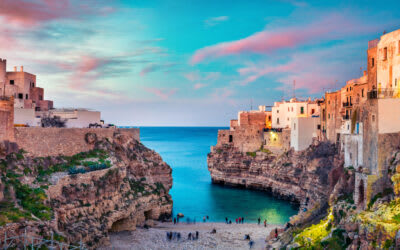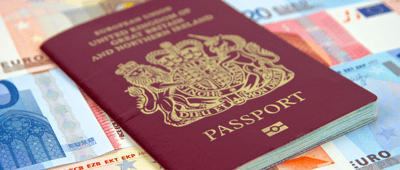Drastic regulatory changes to holiday lets, predominantly apartments, caused mix feelings and some confusion across Portugal last autumn. Now the country’s new government is set on reinstating the old rules. We interviewed Sofia Vicente, associate lawyer at MATLAW for an update and hopefully some clarification on the situation…

We uncover what the latest rule changes to short-term rentals mean for overseas buyers…
In a nutshell, what is all the fuss about?
It centres around the regulation of Alojamento Local (AL) licenses, the permit required by law to offer a property for short-term holiday rentals.
In October 2023, Portugal’s governing Socialist Party launched a raft of regulations that restricted AL licenses along with a new tax for certain license-holders. These measures formed part of a wider programme called ‘Mais Habitação’, aimed at curbing the tourist rental market and improving conditions for traditional residential renters. The changes didn’t go down well in areas popular with international buyers.
Fast forward to March this year, Portugal voted in a new centre-right government which has begun the parliamentary process of retracting many of the Mais Habitação regulation, arguing it is prohibitive and unattractive to foreign investors. In short, the controversial housing programme has become a bit of a political football, with holiday homeowners stuck in the middle!
Get reputable legal advice, speak to MATLAW about your Portugal property plans today.
Which Mais Habitação measures were especially severe?
The introduction of a special fee charged to apartments with an AL license in areas of high density got a lot of headlines. Called Contribuição Extraordinária para o Alojamento Local (CEAL), the new government was aiming to abolish CEAL in parliament before the first deadline for payment.
Equally high-profile was a suspension on the issuing of new AL licenses to apartments or condo-style properties in Portugal’s developed coastal areas, which crucially includes the Algarve and Lisbon. Interior regions, autonomous territories or any municipality not classed as having a housing shortage were exempt from this and the rule was also not applicable to detached villas.
Other key Mais Habitação measures stated that all new AL licenses have a fixed duration of five years, renewable by the local municipality; existing AL licenses (those granted before the law came into effect) remain valid until 2030 before revaluation; AL licenses are no longer transferable and expire on the transfer of ownership.
So are new AL licenses available now?
The main aim of these restrictions is to maintain a balance between short-term and long-term rentals and ensure there are adequate properties available for residents in Portugal. The Portuguese Government aims to decentralise the regulation of tourist accommodation and return full control of AL licenses and tourist lodging in general to municipalities. The general shift is to make AL licenses available again anywhere where the municipality deems it feasible, and it serves the community positively.
In the Algarve and other areas affected by the Mais Habitação rules, buyers are advised to check the local situation with their estate agent and Portuguese lawyer. If you are buying a property with an existing AL license, you need confirmation that this will transfer over to you as the new owner. If you are buying a property without a license, you need confirmation you will be able to obtain one as the new owner. The answers to these will vary by municipality and area.
How do you obtain an AL license?
We highly recommend you speak to a knowledgeable lawyer in Portugal before applying for a license. They are legally trained and can help you manage any potential risks or tax implications. We recommend MATLAW. Get in touch today.
AL licenses, which were introduced in Portugal in 2008, are obtained from your property’s local council (câmara municipal). To obtain one, your property will need to be in good condition and meet specified compliance requirements, including health and safety. AL licenses are usually obtained through a local law or accountancy firm, otherwise speak to your estate agent or a management agency for assistance.
What if I offer rentals without an AL license?
First off, you’ll struggle to advertise your property effectively. Local agencies and online rental platforms, including leading websites like Airbnb and Vrbo, are not allowed to list Portuguese property for rentals without displaying a valid AL registration number. Breaking the rules carries the risk of penalty fines for both the advertising platform and property owners.



